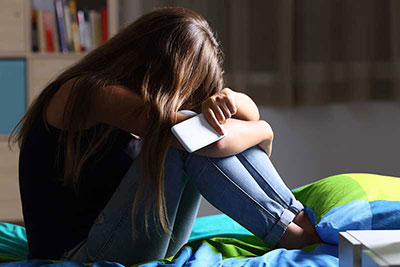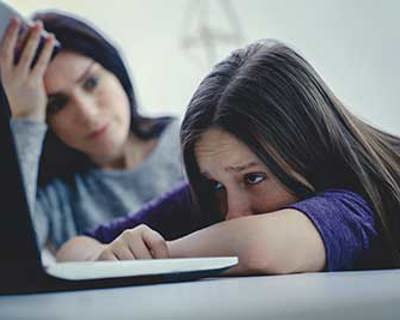Sexting
Advice on talking to your child about sexting
From the time our children are babies we teach them right from wrong, how to keep themselves safe and how to recognise danger and when they are at risk. When it comes to the internet, it isn’t always easy to do this.
 Children are using the internet and taking selfies at a younger and younger age, so it’s important to have a conversation with them about online safety. Although you might not allow them to have a smartphone or tablet, that doesn’t mean they can’t use a friend’s devices. It’s always better to teach older children how to use the internet safely rather than try to control their access to it.
Children are using the internet and taking selfies at a younger and younger age, so it’s important to have a conversation with them about online safety. Although you might not allow them to have a smartphone or tablet, that doesn’t mean they can’t use a friend’s devices. It’s always better to teach older children how to use the internet safely rather than try to control their access to it.
What is sexting?
Sexting involves sending sexually explicit images or videos between electronic devices such as smartphones, tablets or computers. This can include:
- sending and receiving naked or semi-naked pictures or videos of yourself or others
- sending text messages with sexual content.
Is sexting illegal?
It is illegal to take, possess or share 'indecent images’ of anyone under 18, even if you're the person in the picture. While police will always try to avoid treating sexting among children as a crime, they also need to focus on children’s wellbeing, which can result in serious actions being taken.
Understanding sexting
Why do teenagers sext? For some it will be a voluntary decision, but it could also be due to pressure from friends or a boyfriend/girlfriend. Some of the main reasons young people give are:
- "Everyone is doing it and it’s not that big a deal."
- Pressure from a boyfriend/girlfriend.
- To show they are attracted to or have strong feelings for another person.
- Believing that only the person they send it to will see it.
- Feeling bullied or forced into doing it by others.
- Feeling insecure and hoping by doing it they will be accepted by friends.
- Experimenting with their sexuality.
- As part of teenagers’ natural tendency to push boundaries and take risks.
Talking to your child about sexting
Communication is vital: try to talk openly about the consequences of sexting: what might happen and where they can get help for themselves or someone they know.
Here are a few ideas about how you can open up a conversation:
- Use something in the news, or relate it to something you have heard about a celebrity.
- Listen to their views on sexting.
- Explore how they might feel if a naked photo of them was shared on the internet.
- Be clear that you are against them sharing a naked photo of themselves, not just because it’s illegal but because of the risks.
- Make sure they know that sharing a naked image of someone else can be a form of abuse.
- Agree who they should talk to if they’ve any worries (this may not be you, but should be an adult you trust like an older sibling, guidance teacher etc).
Where to go for help
If an illegal picture has been shared online, the website or social media channel has a duty to remove the photo(s). You can contact Children 1st’s Parentline on 08000 28 22 33 for support with this. You can also get help from:
- ThinkUKnow has advice for parents on protecting children online.
- You can make a confidential report to CEOP (Child Exploitation and Online Protection) if you're worried about a child being the victim of a sexual crime online.


